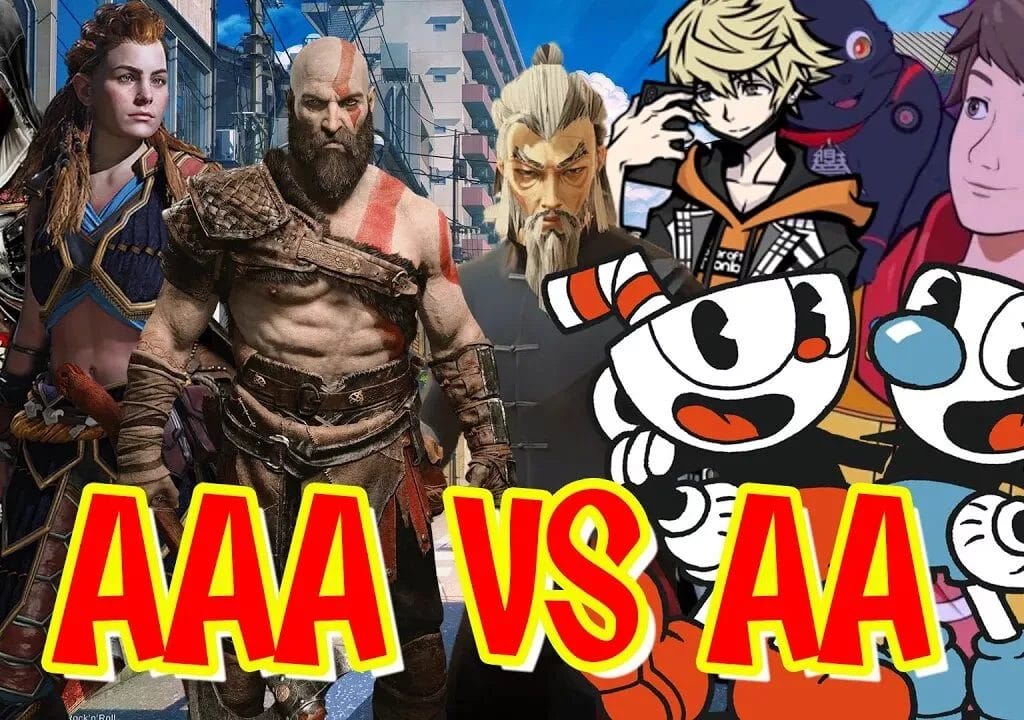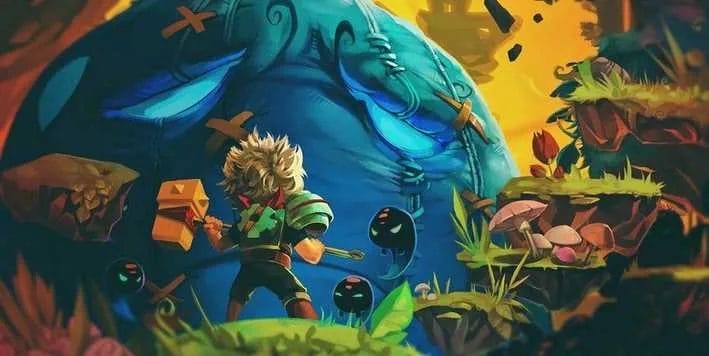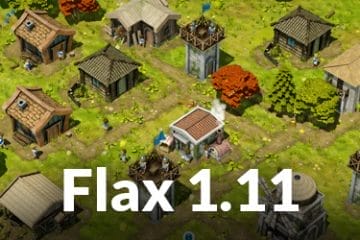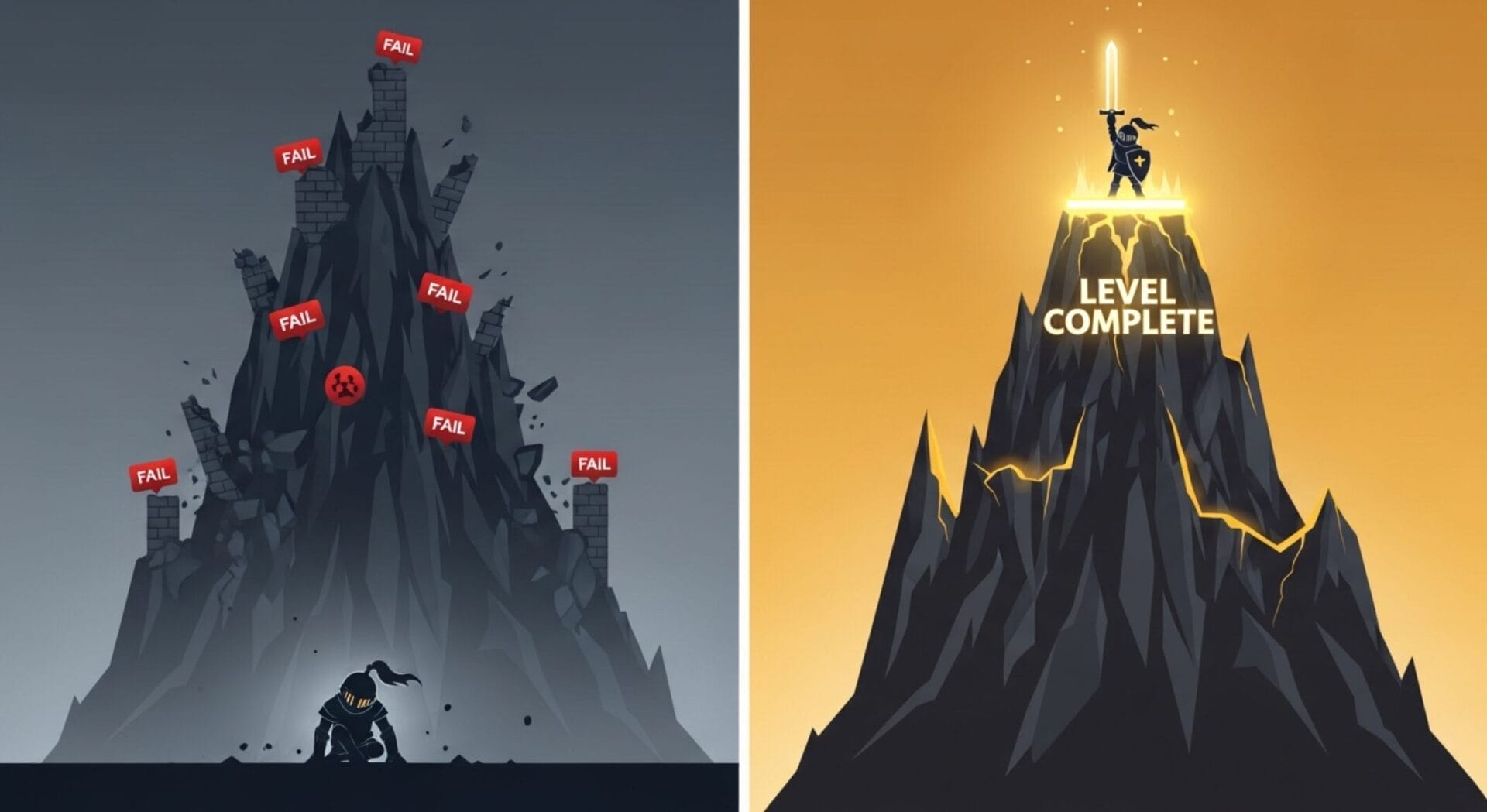The popularity of indie games has skyrocketed over the last 10-15 years. Titles like Minecraft, Undertale, and Stardew Valley originated as indie projects before becoming mainstream hits. But what exactly makes a game “indie”, or indie game meaning, and to make an indie game?
This article analyzes the defining qualities and development process of independent video games.
Contents: Indie game meaning
The Indie game meaning and the process behind its creation
Let’s start our approach on the indie game definitions and processes.
Key Considerations for Aspiring Indie Developers
For developers considering going indie, keep the following tips in mind:
- Start Small: Don’t attempt overly ambitious projects out of the gate. Keep your first release simple.
- Validate Quickly: Fail fast by testing your idea through early prototyping before committing fully to development.
- Understand Business Principles: Learn principles of game marketing, funding, budgeting, monetization, etc. Indie dev is running a small business.
- Build a Community: Engage players early through social media and content creation. Community feedback and support is invaluable.
- Maintain Work-Life Balance: Indie crunch is real. Avoid burnout by taking regular breaks and time off when needed.
- Playtest Constantly: Playtest early builds often. Tap into player feedback to refine and polish gameplay until it feels just right.
- Explore Publisher Partnerships: Many indie studios partner with indie publishers for funding, marketing, or console porting assistance while retaining creative control and IP rights.

Defining Indie Games
There is no single feature that universally defines an indie game. But most indie titles share the following key traits:
Developed Outside the Major Publishing System
Indie games are created without significant funding or oversight from a major publisher like EA, Activision, or Ubisoft. Developers retain creative control over their projects rather than having to meet publisher demands.
Smaller Team Size
Where AAA productions may have hundreds of developers, indie games typically have team sizes in the single digits to low tens. Many successful indie games have been developed by just 1-3 people.
Lower Budgets
Without major publishing house backing, indie developers work with much smaller budgets, often in the tens of thousands to low millions range. This requires more careful scope management.
Focus on Innovation
Freed from constraints, indie developers can take more risks and experiment with innovative game styles, designs, and experiences AAA titles tend to avoid.
Creative Independence
Indie studios retain full creative control and IP ownership of their games, rather than handing over rights to a publishing labels. The game’s vision comes entirely from its developers.

The Motivations for Going Indie
If indie gamedev poses greater financial risk, what motivates developers to go independent?
Creative Freedom
Many developers go indie because they want full creative control over their game without having to compromise their vision. game editors demands can often dilute a developer’s desired game experience.
Flexible Work Culture
Indie studios often foster more flexible, collaborative work cultures compared to intense AAA crunch schedules. For some, the indie lifestyle is more sustainable long-term.
Innovation Opportunity
Indie gamedevelopers push boundaries the big studios won’t. Going indie provides opportunity to innovate and introduce completely new game genres and styles.
Potential for Success
Numerous indie games have gone on to become huge mainstream hits after humble origins, proving financial success is possible. The indie route provides a high reward if you create a hit.
Artistic Expression
Some developers simply want to make games as an artistic medium for self-expression. The creative independence of indie games makes that possible.

Key Steps in Developing an Indie Game
While every indie studio is different, most follow a similar high-level development process:
Come Up with a Core Game Idea
Indie or AAA, every game starts with a core idea. Indie game developers brainstorm concepts that capture their creative passions and play to the strengths of their team size and resources.

Validate the Idea Through Prototyping
A prototype tests the most important gameplay elements and overall fun factor early on. Prototyping lets indiedevs fail fast and make sure the idea works before committing to full development.
Create a Game Design Document
The GDD expands the game concept into a complete vision, guiding development. It details narrative, mechanics, levels, technical requirements, art style, and other key elements.
Assemble a Small Dev Team
Most indie games keep team sizes below 10 people. The team should cover core roles like programming, art, design, and sound while maintaining a compact indie scale.
Choose Development Tools
Indie studios carefully select game engines and tools that best fit their game idea, team skills, and financial resources. 2D tools like GameMaker and Unity are very popular.
Set a Development Schedule
A schedule keeps the team on track and prevents scope creep. But indie schedules must be flexible to adapt to inevitable changes in scope or delays.
Focus on the Core Gameplay Loop
Indies hone the most critical gameplay elements first that directly support the core experience. Additional content comes later.
Continuously Playtest and Refine
Extensive internal playtesting and external feedback drives refinement of gameplay, UI, mechanics, controls, tutorials, and content pacing.
Create Visually Cohesive Art and Audio
Indies often can’t compete on AAA production values, but a visually consistent art style and quality audio make a big difference for polish and atmosphere.
Market Early Through Content Creation
Indies build awareness by engaging media and influencers well ahead of launch. Demos, teasers, and behind-the-scenes updates help build an audience.
Release on Digital Platforms
Low-friction digital stores like Steam and itch.io are critical platforms for indie launches. Options like Early Access provide further visibility.

Key Differences Between Indie and AAA
While the lines continue to blur between indie and AAA, some key differences remain in how each approach videogame development:
- Team Size: Indies use much smaller team sizes, often under 10 people. AAA games have hundreds of developers.
- Budgets: Indies work with limited budgets under $5 million. AAA budgets can exceed $100 million.
- Production Values: AAA games achieve much higher production values and polish. Indies rely more on innovative mechanics and creative style.
- Creative Risk: Indies take greater creative risks, while AAA focuses on proven formulas and sequels.
- Innovation: Indiegames pioneer new genres, mechanics, and experiences more frequently than risk-averse AAA games.
- Business Model: More indies start with paid models versus AAA’s focus on free-to-play and service-based games.
- Crunch: AAA studios are more prone to extended crunch periods. Indie schedules can be demanding, but are generally more flexible.
- Control: Publishers control AAA creative direction. Indie studios retain full creative control and IP rights.
However, exceptions exist in both directions. The lines have blurred over the years as AA indie-focused publishers like Devolver Digital have emerged. But in general, these differences remain ingrained in each development approach.

Why Indie Games Have Become So Popular
The meteoric rise of indie games stems from several key factors:
- Digital Distribution: Platforms like Steam provide easy digital distribution at low cost, perfect for indie titles.
- Game Engines: Powerful, affordable game engines from Unity and others have lowered the barrier for indie development.
- Hardware Advancements: Indies can achieve high visual fidelity now even without AAA budgets.
- Community Engagement: Indies often build strong community engagement even before launch, creating momentum.
- Innovative Experiences: Indiegames have repeatedly pioneered new genres like battle royale that go on to become mega trends.
- Nostalgia Factor: Many indies leverage nostalgia with retro pixel art styles that resonate.
Indie videogames can now stand toe-to-toe with AAA releases, winning over critics and millions of fans. An indie renaissance has occurred over the last decade that shows no signs of slowing down.

The Future of Indiegames
The independent games industry continues to thrive. As tools become more powerful and digital platforms more accessible, indie developers will be able to turn unique game ideas into reality faster than ever before.
The AAA space is also increasingly embracing smaller indie-style projects alongside its tentpole franchises. Indie sensibilities like smaller scale, more contained experiences, and highly creative concepts will only grow in popularity over the next decade.
Console makers are also aggressively courting indie developers to launch titles on their platforms. Indie games are now critical to the success of any major console or storefront.
Overall, it’s an incredibly exciting time to be an indie developer. The potential to innovate and captivate players around the world with your gaming vision has never been greater. With passion, persistence, and thoughtful care into the game experience, indie developers have endless opportunities make their mark on the industry.
Conclusion
Indie games have cemented themselves as a driving force in the video game industry. Once seen as niche titles, indiegames now stand proudly alongside big-budget AAA releases, captivating critics and millions of fans around the world.
This success stems from indie developers’ relentless creativity, innovation, and focus on crafting memorable game experiences above all else. The passion and artistic vision channeled into indie projects sets them apart.
Looking ahead, independent videogames will continue thriving as gamedev tools become more accessible. The doors are wide open for aspiring indie developers to put their unique stamp on the industry.
With countless new gaming niches yet to be explored, indiegame developers have the chance to pioneer experiences that will delight and inspire players for years to come. If you have a game idea burning inside, now is the time to seize the unlimited opportunities in indie development.
We hope this article provided some enlightening perspective on the world of indie games and what sets them apart in the industry. What are your thoughts on indie game development versus the traditional publisher model? Which indie games stand out to you for their creativity and memorable experiences?
Let me know your take on indie games and development in the comments below! We always love exchanging perspectives with fellow game devs and gamers.
And be sure to subscribe to the blog for more in-depth articles analyzing the game industry. Up next, I’ll be tackling topics like the rise of indie publishers, AAA industry trends, game marketing tactics, and much more.
Thanks so much for reading – now get out there and start creating the next indie hit! I can’t wait to play what you come up with.
FAQ Indie game meaning.
Q: What is the meaning of an indie game?
A: An indie game, short for independent videogame, refers to a video game that is developed by a small studio or an individual developer without the support of a large game publisher.
Q: What is game development?
A: It is the process of creating a video game. It involves designing, programming, testing, and producing a game for various platforms.
Q: How is indie game development different from traditional game development?
A: Indie gamedev is different from traditional game development because indie games are usually developed by small groups or individuals without the financial backing of a large game publisher.
Q: What is the definition of an indie game?
A: The definition of an indie game can vary, but generally, it refers to a game that is developed independently by a small team or an individual developer without the support of a large game publisher.
Q: What is the role of a game developer in indie game development?
A: A game developer is responsible for designing, programming, and creating the content for a video game. In indie videogame development, the developer may perform multiple roles due to the smaller team size.
Q: Why are indie games popular?
A: Indie games are popular because they often offer unique gameplay experiences, innovative ideas, and creative storytelling. They also tend to have lower price points compared to AAA games.
Q: What makes a game indie?
A: A game is considered indie if it is developed independently by a small team or an individual developer without the support of a large game publisher. It is typically characterized by its creative freedom and unique vision.
Q: How can I create an indie game?
A: To create an indie game, you need to have skills in game creation, such as programming, art, and sound design. You can start by learning the necessary skills and then work on developing your game idea.
Q: What are some of the best indie games I should play?
A: Some of the best indie games you should play include “Celeste,” “Undertale,” “Stardew Valley,” “Inside,” “Braid,” “Hollow Knight,” “Cuphead,” “Terraria,” “Gris,” and “Super Meat Boy.”
Q: Why do indie games get so much attention?
A: Indie games get a lot of attention because they often offer unique and innovative gameplay experiences. They are also seen as a way for smaller developers to break into the video game industry and showcase their creativity.
A game developer that wants to share its knowledge and experience with other game developers-








